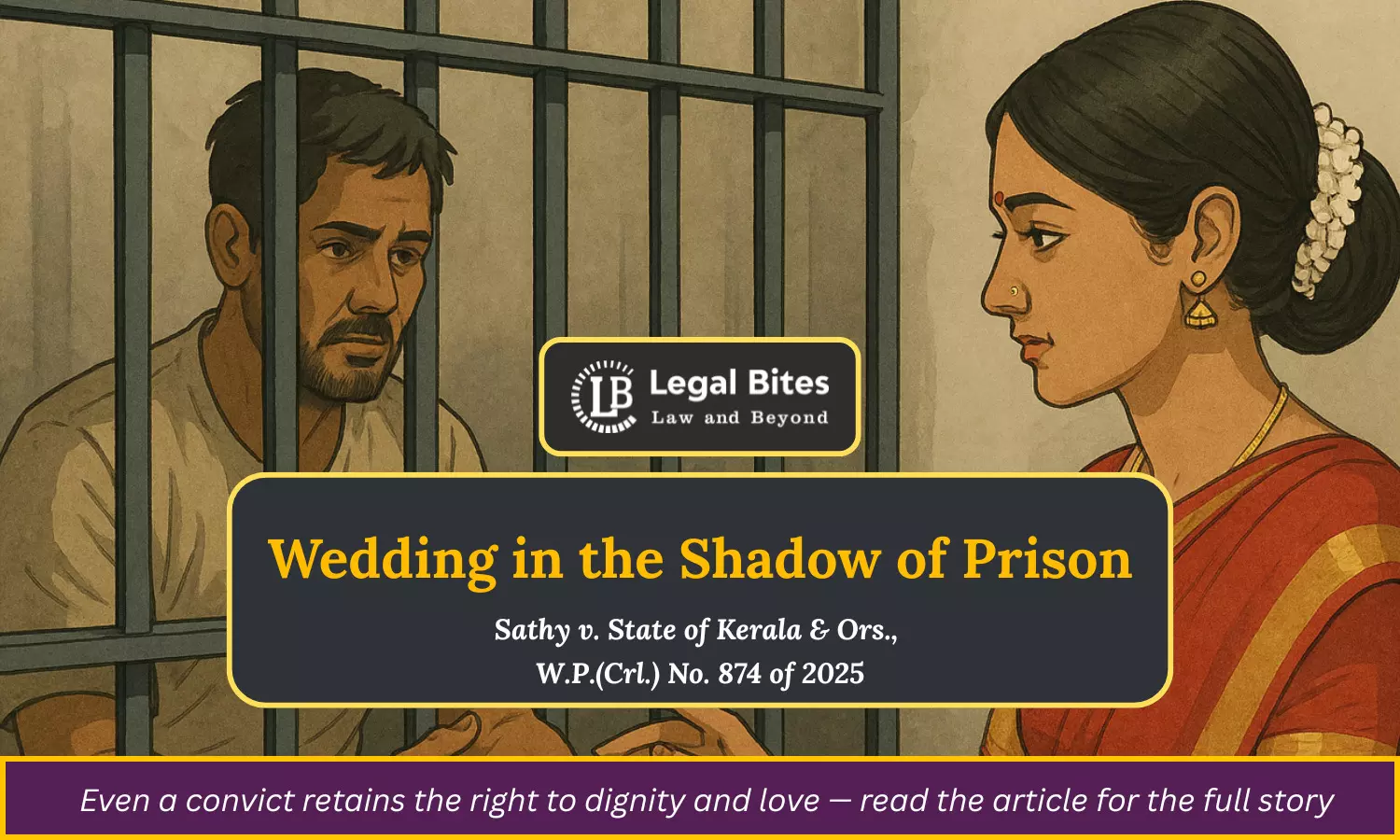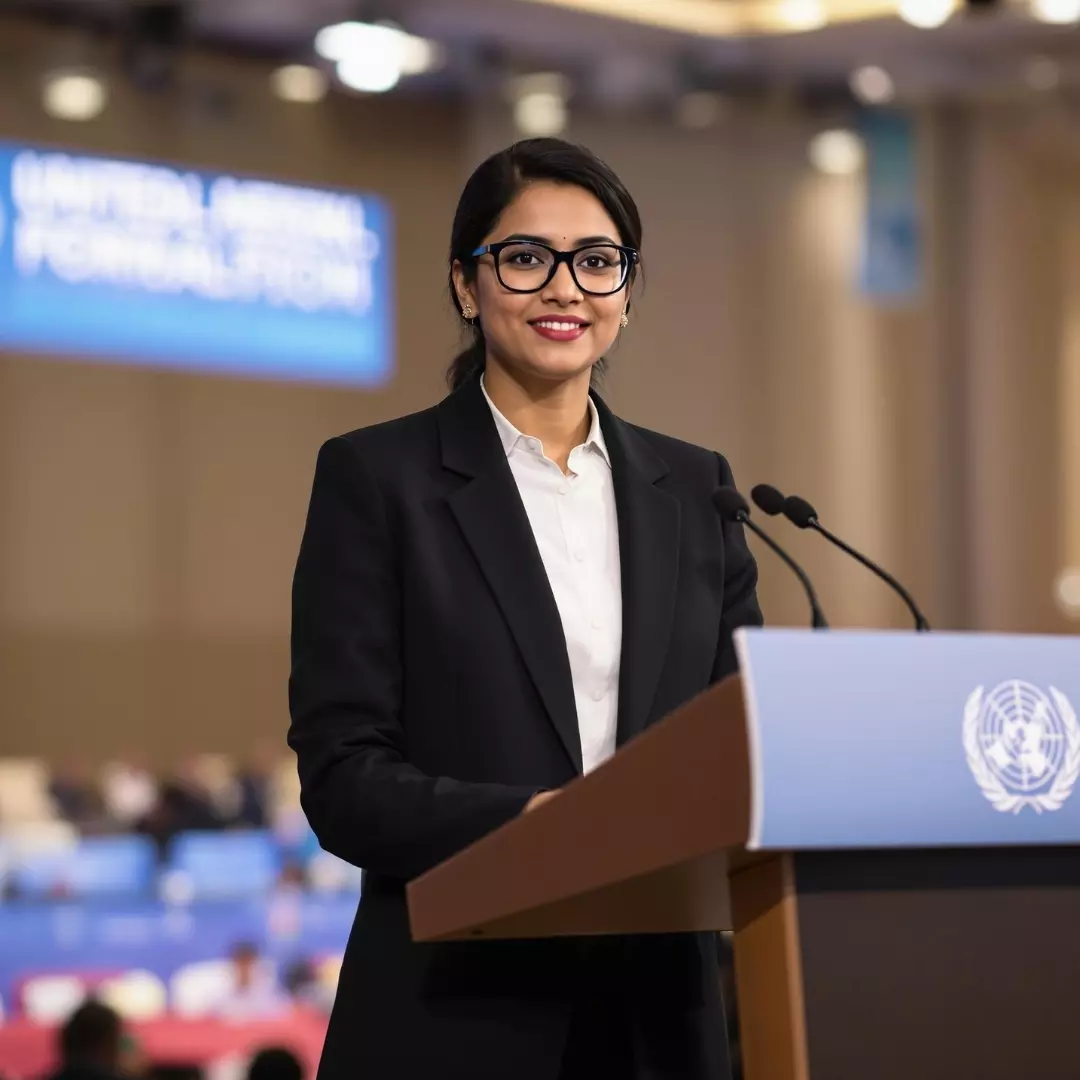Is a Life Convict Entitled to Parole for Personal Reasons Like Marriage?
This article explores the Kerala High Court’s 2025 decision granting parole to a life convict for marriage, emphasising humanitarian and constitutional grounds.

Parole serves as a crucial reformative and humanitarian tool within the criminal justice system, allowing convicts to temporarily step out of incarceration under specific conditions. While parole is often associated with exigencies like health emergencies or death in the family, a less explored question is whether a life convict can be granted parole for personal reasons like marriage.
The Kerala High Court, in its compassionate and nuanced ruling in Sathy v. State of Kerala & Ors., W.P.(Crl.) No. 874 of 2025, has added significant jurisprudence to this debate. The Court held that even a life convict is entitled to limited parole for personal reasons like marriage if compelling humanitarian grounds exist.
Understanding Parole in India
Parole is a conditional release of prisoners for a temporary period before the completion of their sentence. It is granted:
- To maintain familial and social ties.
- On humanitarian grounds such as death, marriage, or serious illness in the family.
- Subject to good conduct and the absence of a threat to society.
Parole is governed by respective state prison manuals and rules, and unlike furlough, it is often granted under pressing circumstances. However, there is no fundamental right to parole, and it lies within the discretion of prison authorities, subject to judicial review.
Kerala High Court Case: Background
In W.P.(Crl.) No. 874 of 2025, a woman named Sathy approached the Kerala High Court seeking emergency parole for her son, a life convict, to attend his wedding. Her son, Prasanth @ Kochu, had been convicted and was undergoing life imprisonment in the High Security Prison, Viyyur.
Key Facts:
- The marriage was arranged prior to conviction.
- A formal wedding fixation ceremony was held, and a wedding card (Exhibit P2) was produced.
- The girl continued to stand by the convict post-conviction, reaffirming her intent to marry him.
- The application for parole was rejected by prison authorities, citing the absence of a specific provision allowing parole for one’s marriage.
The Court’s Humanitarian Approach
Justice P.V. Kunhikrishnan took a sensitive and human-centric view, stating:
“This Court cannot neglect the brave stand of that girl who is ready to marry the convict, even though she knows that her partner is in jail and is undergoing life imprisonment.”
Judgment
- The judge quoted Maya Angelou: "Love recognizes no barriers..."—emphasising the emotional and moral strength shown by the prospective bride.
- The Court acknowledged that while prison rules did not explicitly mention parole for the convict’s marriage, denying such a request would undermine the fundamental human dignity and agency of both individuals involved.
- The Court used its extraordinary constitutional jurisdiction to override administrative rigidity and granted 15 days' parole to the convict from July 12 to July 26, 2025.
Key Highlights of the Judgment
Justice P.V. Kunhikrishnan observed:
"I am looking at this case from the angle of that girl who decided to marry the convict. Even after the convict was sentenced to undergo life imprisonment, her love continues.
I am exercising my extraordinary jurisdiction to grant parole to the convict for a period of 15 days, not looking towards the convict, but looking towards the girl who is ready to marry because of her love and affection for the person with whom her marriage is fixed. She did not change her stand even after the court convicted the convict with life imprisonment. I am of the considered opinion that 15 days' parole can be given to the convict. Let that girl be happy, and this Court shower all blessings upon her."
Legal and Ethical Dimensions
1. Rehabilitation and Reform
One of the primary goals of the prison system is reformation. Marriage is a stabilising institution and may positively impact a convict's psychological state and social behaviour. The Kerala High Court’s approach aligns with this reformative purpose.
2. Right to Family and Personal Life
Article 21 of the Constitution guarantees the right to life and personal liberty, which courts have interpreted to include the right to dignity, family life, and emotional well-being. Denial of parole without justification violates these rights.
3. Scope of Judicial Review
The High Court exercised its writ jurisdiction under Article 226 of the Constitution to ensure justice when executive action was overly restrictive. The case exemplifies the judiciary’s role in balancing prison discipline with individual liberty.
4. Public Safety v. Individual Liberty
Authorities may hesitate to grant parole to life convicts due to public safety concerns. However, in the present case, the petitioner submitted a detailed plan for the ceremony and verified the date with police, ensuring there was no security threat.
Comparative Judicial Trends
Indian courts have previously dealt with similar requests:
- Delhi High Court in Sunil Batra v. Delhi Administration emphasised that even convicts retain certain fundamental rights behind bars.
- Bombay High Court in Arun Gulab Gawli v. State of Maharashtra allowed parole for a convict to attend family functions, reiterating the importance of reformation and familial bonds.
- Supreme Court in State of Haryana v. Mahender Singh (2007) stressed that parole is not a matter of right but can be granted if there is no adverse report.
The Kerala High Court’s judgment extends this progressive line of reasoning to personal and emotional grounds, reaffirming that a convict's humanity does not end with conviction.
Administrative Challenges and Reforms
This case also exposes a gap in the existing prison rules of Kerala which, as per the Superintendent’s denial order (Exhibit P3), do not include provisions for parole for one’s marriage. It raises the following concerns:
- Lack of clarity in prison rules may lead to arbitrary denials.
- Need for codified guidelines on parole for marriage, including own marriage, to bring uniformity and avoid litigation.
- Inclusion of humane criteria in administrative manuals can ensure that deserving cases are not denied relief due to bureaucratic technicalities.
Broader Social Message
The judgment sends out a powerful message: people, even convicts, can be deserving of dignity, love, and second chances. The prospective bride’s resolve to marry a life convict despite social stigma was seen as a courageous and transformative act, meriting state support rather than obstruction.
Conclusion
The Kerala High Court’s ruling in Sathy v. State of Kerala sets an empathetic and legally sound precedent by holding that life convicts may be granted parole for personal reasons like marriage when humanitarian considerations so demand. It reflects a balanced approach where justice is not blind to love, commitment, and reformative potential.
Parole, in such contexts, becomes not just a legal mechanism but a moral imperative, reminding us that the justice system must evolve with human values and compassion. This decision urges prison authorities and legislators to reevaluate existing parole frameworks and embed within them the spirit of humanity and dignity guaranteed by our Constitution.

